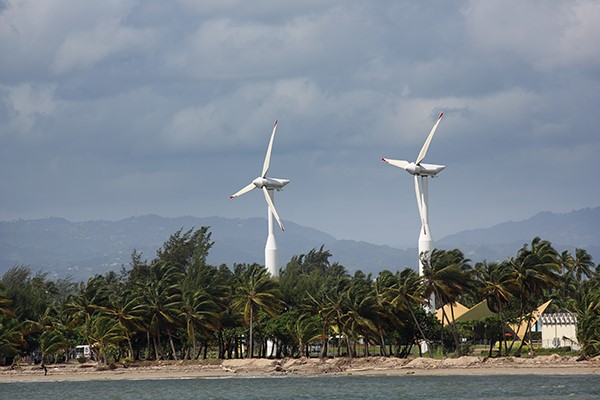A brighter future for Caribbean energy
Published: 20/04/18
The costs of supplying energy to remote islands tends to be higher than to other jurisdictions. In most cases, relatively small populations have to import fuel which is then used for on-island electricity generation. This creates a cost base that utilities try hard to keep to a minimum but, faced with global economic realities that favour scale and geographic simplicity, they are fighting an uphill battle.
As a result of their unique conditions, Caribbean nations top the charts for energy costs, with bills that have been found to exceed US$546 per month just to power a small apartment. This is more than three times the US average and, despite utility companies' best efforts to keep bills down, the truth is that they can represent an enormous burden for people living in a nations such as Dominica, which, according to the IMF, has a GDP per capita of just US$8,592.
Reasons for the high level of energy costs include:
- a reliance on energy production using expensive imported liquid fossil fuels
- the Caribbean's location in a hurricane belt, with storms severely disrupt centralised energy infrastructure, raising the cost of maintaining a functional grid.
It's against this backdrop that advances in the efficiency of renewable energy generation and the effectiveness of battery storage are being welcomed. For the first time, Caribbean islands are seeing the possibility of moving to lower cost methods of electricity generation.
Diversifying the energy mix
Developments in renewable energy technologies are playing a crucial role in changing the energy generation landscape. The increasing efficiency of solar photovoltaics (PV) in particular is making it possible for smaller entities, whether businesses or individual homes, to generate not only their own energy but also their neighbours' through the development of microgrids.
This decentralisation of energy generation increases the reliability of supplies in the face of hurricanes and other extreme natural phenomena. With their increasing cost-effectiveness solar PV are playing a growing role, but they are not the only way to generate electricity from renewable sources on storm-hit islands, and alternatives can provide even greater resilience.
“In 2018, the markets within the region will favor systems such as renewable energy-driven water supply designs and interconnected microgrid designs that are capable of responding effectively to changes in demand and supply dynamics,” said Devon Gardner, Program Manager for Energy at the CARICOM Secretariat, as reported in an article for newenergyevents.com.
The reality is that for the first time, Caribbean nations are able to build a truly diversified and distributed energy infrastructure that is more likely to withstand the forces of nature, whilst also producing energy at a lower cost than is possible with imported liquid fossil fuels.
The utility billing challenge
There's no doubt that the Caribbean's energy revolution is going to create challenges for incumbent energy suppliers who are used to providing a one-way flow of energy and information - from centralised production facilities to the customer.
Growth in small-scale renewable energy production and its distribution via microgrids will require existing utilities to engage in a two-way flow of energy and data, with billing systems requiring the sophistication to measure, debit and credit customer accounts with speed, precision and reliability.
As customers take on responsibility for generating their own energy, or turn to neighbourhood grids for their supplies, so power companies will be expected to adjust their services to make this possible. Inaccurate billing will be an unacceptable sign that utilities are not able to keep up with the pace of change.
Accurate, flexible billing solutions
As a specialist provider of utility billing software for suppliers in small islands and jurisdictions, Jendev stays ahead of the game. We monitor the trends that affect our clients and respond by designing solutions that enable them to excel - both by meeting customer expectations with billing accuracy, and also by providing the flexibility that communities need to implement lower cost, diversified energy supplies.
To discuss your requirements and discover how our specialist products and services can help, call us today on +44 (0) 1534 505350.
B a c k t o K n o w l e d g e
